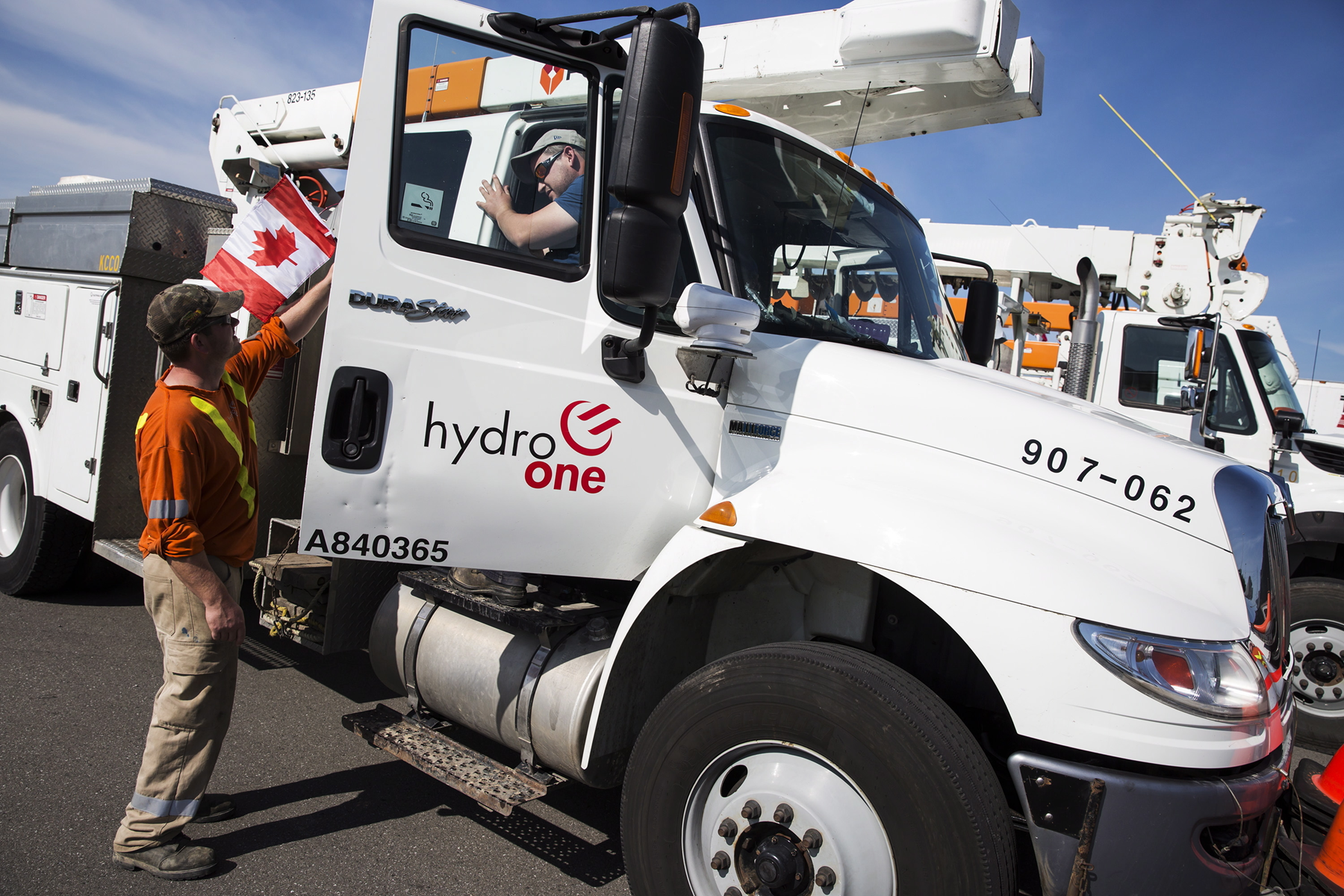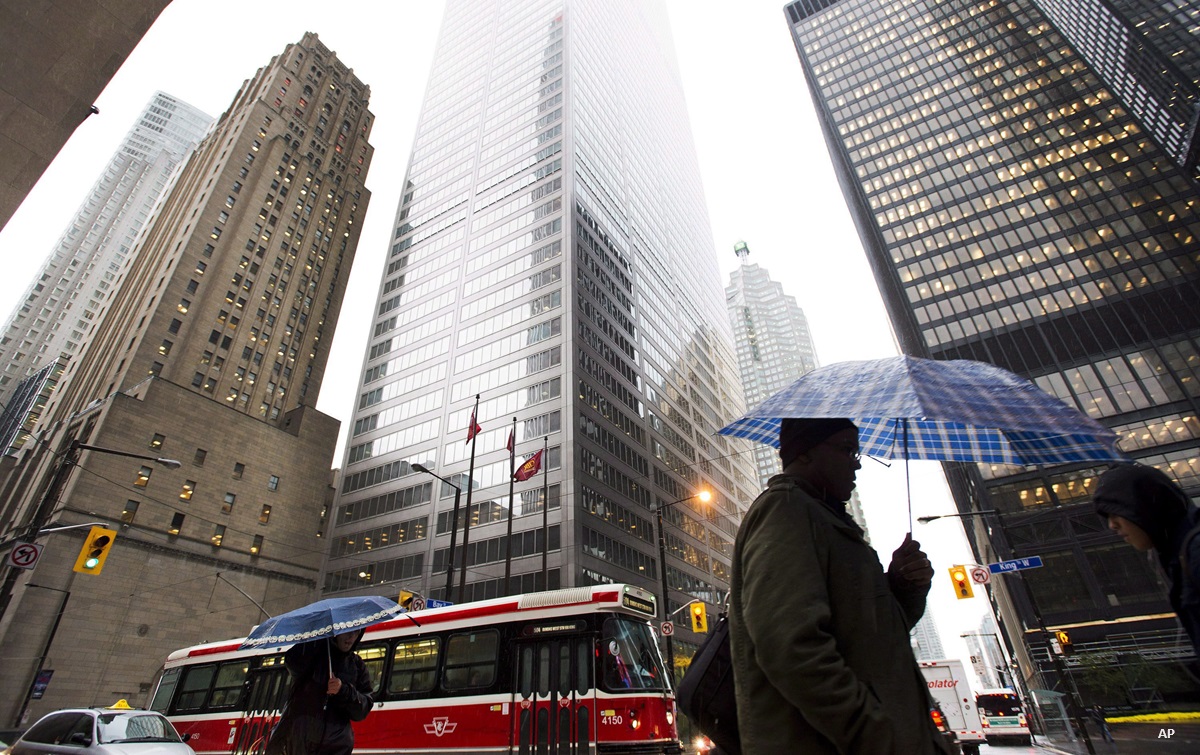When evaluating investments, we scan environments both within and around businesses, but now, more than ever we need to take a wider lens – beyond macro issues and policy moves.
We’re past the point of mitigation when it comes to climate change. And only adaptation and action will save exposed and contributing Canadian companies.
Canada’s climate is changing, with observed changes in air temperature, precipitation, snow and ice cover and other indicators, and further changes in climate are inevitable. The Federal Government’s recent report, Canada in a Changing Climate paints a dire picture, saying “Over the last six decades, Canada has become warmer, with average temperatures over land increasing by 1.5°C between 1950 and 2010. This rate of warming is about double the global average reported over the same time period.”
Sink or swim
“What was interesting about that report is it was less about mitigation and more about preparedness. Mitigation is a challenge, but the route to get there is through adaptability,” says Jamie Bonham, manager of corporate engagement at NEI Investments.
It’s hard to plan for the future when there is little certainty about what that future could look like. Bonham recommends that though companies already stress test for preparedness of climate rising by two degrees, they should also consider scenarios where temperatures could rise by three or even four degrees. “What are the physical risks to that level of warming? Can companies even survive? What kind of dramatic changes should be made to counter that impact?” he asks.
It is plain that companies need to act now – not just to reduce the impact of climate on their businesses, but the impact of their businesses on the climate.
“Corporations demonstrate corporate social responsibility by becoming ‘net neutral’ in carbon emissions. They should also signal a support for a carbon tax, which is the most efficient way to allocate emissions across the economy,” says Karen Bakker, Director, Program on Water Governance at the University of British Columbia.
“We’re asking companies to do three main things: 1) develop a transition plan to reduce greenhouse gas emissions across the value chain, consistent with the Paris Agreement’s goal of limiting global average temperature increase to well below 2 degrees Celsius and to pursue efforts to limit the increase to 1.5°C, above pre-industrial levels; 2) provide enhanced corporate disclosure in line with the final recommendations of the Task Force on Climate-related Financial Disclosures (TCFD); and, 3) implement a strong climate governance framework which clearly articulates the board’s accountability and oversight of climate change risks and opportunities,” says Laura Gosset, senior analyst at Shareholder Association for Research & Education.
She points out that time is of the essence, and so the most important element of this is setting ambitious, measurable, and absolute targets to meet the Paris Agreement goals, not just producing glossy reports about it.
Canada hurting on sustainability
The latest edition of the Morningstar Sustainability Atlas finds Canada’s sustainability score dragged down an otherwise average ESG performance. With an overall sustainability score of 47.03, Canada is in the fourth quintile globally, thanks to controversies from some of the country's largest companies, like Royal Bank of Canada (RY) or The Toronto-Dominion Bank (TD). Canada does, however, score better on governance.
“There is a clear link between good governance and outperformance, however, the risks of the future are not from governance, but more from the social and environmental pillars of ESG,” Bonham warns. He points out that companies and projects could see complete “full-stop shutdowns” if social issues like indigenous engagement are mishandled. From an environment standpoint, certain sectors could be dramatically impacted by water scarcity, as an example.
It is impossible to ignore Canada’s dependence of fossil-fuel and energy, and this dependence has lead to the Sustainability Atlas awarding Canada a low carbon score. However, energy is not entirely a lost cause when it comes to sustainability.
“We still need and expect leadership from the energy industry. We need to see an increased level of ambition in tackling climate change - particularly around the issue of methane emissions. Reducing methane emissions from the oil and gas sector is a key measure under Canada’s Climate Plan and our ability to meet Canada’s commitment under the Paris Agreement depends on reductions from this sector,” Gosset notes.
Methane is a particularly potent greenhouse gas that has over 70 times more global warming potential than carbon dioxide in the short term. Almost half of all methane emissions in Canada come from the oil and gas sector’s upstream activities. “That figure is likely much higher due to gross inaccuracies in measurement that have been detected in recent peer-reviewed research,” Gosset points out, adding that there is a clear business case to reduce methane emissions because it is a marketable commodity and efforts to reduce fugitive emissions increase operational efficiency.
Bakker warns that while climate change is indeed a key issue, we shouldn't overlook other environmental issues like biodiversity loss, and water insecurity. “Canada has a very decentralized approach to environmental governance, and more variable (and often weaker) standards than other comparable OECD jurisdictions. For example, the Canada Water Act dates from the 1970s and has not been updated to reflect evolving science,” she says. She also points out that Canada has a huge opportunity to model an equitable, innovative transition to a post-carbon future. “If we don't do this, we'll miss a huge economic opportunity in 21st century renewables,” she warns.





















